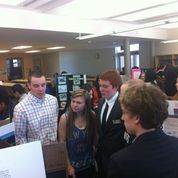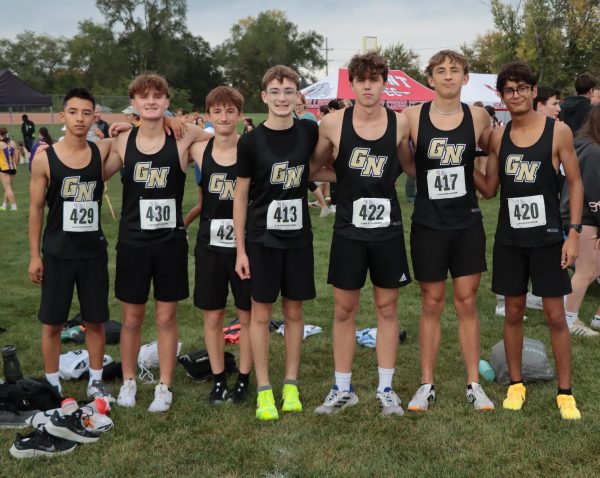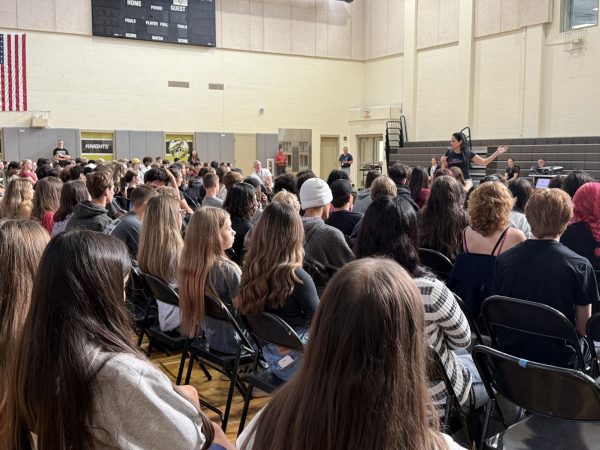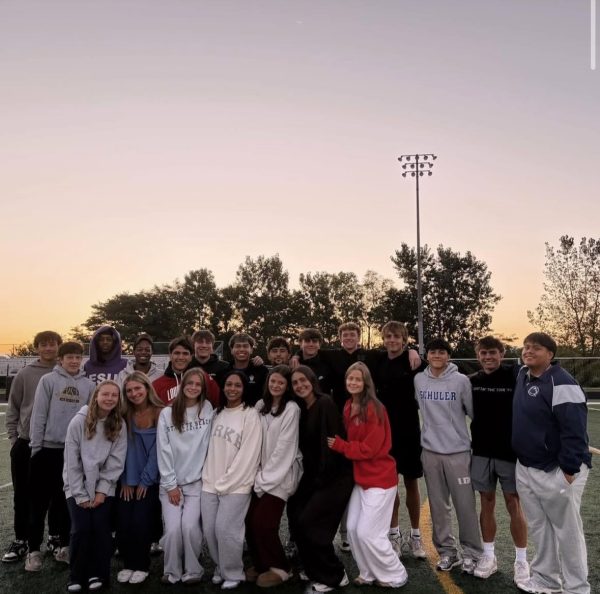PSP concludes year with Passion Projects
Public Service Practicum Passion Projects combine a school year’s worth of skills with what the students are truly passionate about.
The idea behind the projects is simple; students create projects concerning something they are passionate about. They find a problem and draw attention to it.
“Students work hardest on what they love [and] what they are passionate about. They find what they really want to help, what they want to do and they alleviate that problem. They know that they may not be able to eradicate the problem, but they can help make a difference,” said PSP teacher Christopher Kubic.
The idea for the Passion Projects has been around for almost as long as the Public Service Practicum class itself has been.
“The idea for the projects was introduced when I started the course. I think I just stumbled upon it. The students wanted to do something they were passionate about, and I decided that rather than having people forced to do something that they are not passionate about, why not let them all try it. It slowly became more organized, and now it’s a tradition that students look forward to every year,” Kubic said.
Students call upon skills learned in the beginning of the year and combine it with their own skills and knowledge.
“Our early units are about marketing, management [and] what motivates people. We look at social projects and issues that people at our school struggle with. The students combine their knowledge of how to run an event or how to create a movement, the skills that go with making a presentation and pitching their idea with the skills that they already have,” said PSP teacher Emily Weiss.
Many of the projects are not just a classroom assignment. Some students continue to work on their project past the end of the school year.
“Some of the projects are so large that they can’t possibly come together before the end of the school year. Then, [students] have to figure out if they want to change it, or if they want to be committed to that project beyond the school year’s end. We have a project this year that is a freshman day of service for incoming freshmen for the 2014-2015 school year. That is something that that PSP student has to be committed to for past the school year,” Weiss said.
What originally began as a way to get students involved has slowly evolved into a multiple day event where students present in classrooms, to community leaders and parents and to other students in the library.
“Passion Project is the capstone project for PSP. It’s when students take all of the skills that they’ve learned in PSP and their own personal passions and combine them to make one big project that makes an impact in the school community,” Weiss said.
Ideas from projects come from all over, but for many students, the inspiration comes from their heart.
“For a lot of students, it is something that they’ve always cared about or something that they’ve done a lot with before. Some of the projects we have this year have to do with the military or troops and were done by students who have actually volunteered to help out for those organizations before. We like the projects to start with the students, what they like to do, their goals and what they are passionate about,” Weiss said.
For senior PSP student Caitlyn Sinclair, inspiration for her project came from her dog, Cody.
“My project is a dog walk to raise money for a dog shelter. A lot of dogs don’t have homes and live at shelters. I’m lucky that my dog has a home where he’s loved, but a lot of dogs don’t have places where they are loved, and I want to help them get that,” Sinclair said.
As the school year draws to a close, students start thinking more about how they want to be remembered at Grayslake North, an idea closely linked to the projects.
“We write thank you notes to people who have helped us, cheer on other classmates as they finish their projects, and then we talk about what kind of legacy the students want to leave at Grayslake North, how they want to be remembered. For many students, their Passion Project is closely tied to what they want their legacy to be when they leave,” Weiss said.






